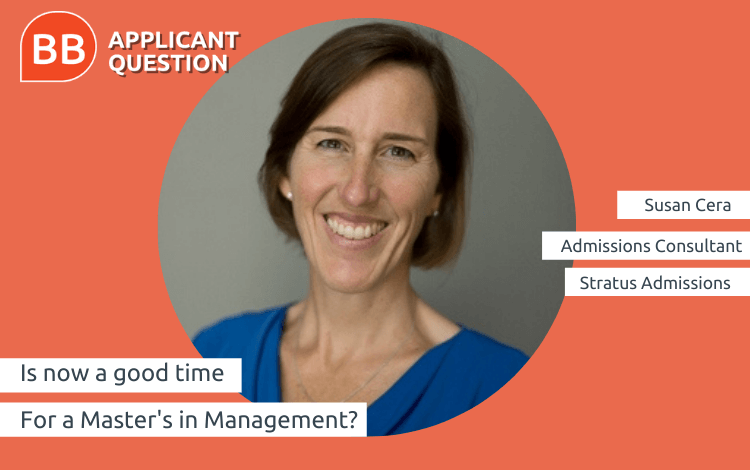Should I get an MBA straight after undergrad?
Dear BusinessBecause,
With Covid-19 making people consider delayed entry into the job market, do you think getting an MBA straight after undergrad is a good idea?
The Answer
This week’s Applicant Question is answered by Victoria Dudka, admissions consultant at MBA Strategy.
Employment and career perspectives for 2020-2021 graduates seem vulnerable, with global working hours expected to decrease by 10.5% in this quarter, according to the International Labour Organization research.
With so many worries about career prospects in mind––such as lost internship opportunities over this summer––recent undergrads might see pursuing postgraduate studies as the best option.
There are a growing number of businesspeople who have put their plans to apply for business school in 2020-2021 aside, arguing the absence of real experience opportunities and a turbulent health environment make it a bad option. They would prefer to keep their jobs and avoid the additional expenses of an MBA education.
Young adults who have just graduated with their Bachelors’ degrees see further learning through an MBA program as their best option: further education at a prestigious school and stay away from the job market during the Covid-19 period.
Got a question of your own?
MBA after undergrad | The Pros
Many business schools have eased their admissions requirements for 2020-2021 applications. With around a 50% decrease in the number of MBA applications, the greatest challenges undergraduates face––the absence of experience, GMAT/GRE tests, and leadership achievements––can turn into their opportunities.
Some schools, like Darden, have waived GMAT/GRE requirements, while others have lowered recommended test scores, and allowed submissions after application deadlines.
So, what do undergrads need to do to be considered?
A lack of professional background can be compensated through other initiatives, like volunteering and part-time work during studies. For example, a good option to replace work experience could be volunteering during quarantine: delivering food and medicines, giving online lessons, participating in social programs with online applications.
Another good option is to participate or organize academic and social initiatives during studies. Both options will work if provided on a regular basis (one or two years of such experience will be perfect) and incredibly impressive in their outcomes and impact.
Some business schools’ value social impact and initiatives more than the years of professional experience you have when applying. Schools such as Yale School of Management, Stanford Graduate School of Business, Harvard Business School, and Darden.
Read another applicant question
MBA after undergrad | The Cons
Absence of professional experience can weaken your MBA application, including your essay profiles and recommendations.
A strong MBA application includes outlining your pre-MBA achievements that are:
. Relevant to previous background
. Considerate of current job market trends
. Measurable achievements
These examples will be bolster your application if:
. They are detailed examples of real cases that outline your strengths, and position you as a strong candidate: a team player, aspiring leader, achiever, strategic thinker, and decision maker.
.A number of these examples show long-term progression in both your professional and personal development.
My advice for both options is think first, act later. Make a thorough assessment of your strengths and weaknesses, think strategically about your 5-year plan for the future. Identify your priorities and ask yourself: 'Why should I apply for an MBA program right now?'
Ask an admissions expert a question
Next week you'll have the chance to ask Jenifer Turtschanow, CEO of ARINGO Admissions Consulting, anything you want about getting into business school.
Jenifer began her career in Alaska, working in sales management. In 2015, she pivoted her career with a Master's in Higher Education at Arizona State University.

After graduating, Jenifer used her newfound expertise to help applicants into their dream MBA programs with ARINGO. For the past six years, she has built up experience with helping professionals into top 25 programs.
Got a question you'd like Jenifer to answer? Submit your question




